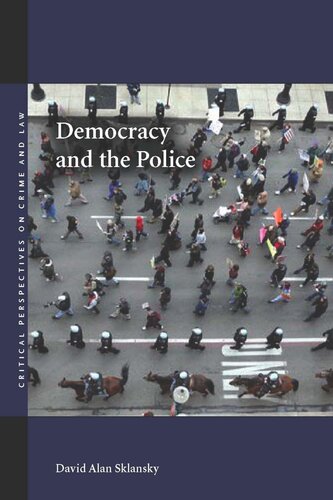

Most ebook files are in PDF format, so you can easily read them using various software such as Foxit Reader or directly on the Google Chrome browser.
Some ebook files are released by publishers in other formats such as .awz, .mobi, .epub, .fb2, etc. You may need to install specific software to read these formats on mobile/PC, such as Calibre.
Please read the tutorial at this link: https://ebookbell.com/faq
We offer FREE conversion to the popular formats you request; however, this may take some time. Therefore, right after payment, please email us, and we will try to provide the service as quickly as possible.
For some exceptional file formats or broken links (if any), please refrain from opening any disputes. Instead, email us first, and we will try to assist within a maximum of 6 hours.
EbookBell Team

4.1
100 reviewsEveryone is for "democratic policing"; everyone is against a "police state." But what do those terms mean, and what should they mean? The first half of this book traces the connections between the changing conceptions of American democracy over the past half-century and the roughly contemporaneous shifts in ideas about the police—linking, on the one hand, the downfall of democratic pluralism and the growing popularity of participatory and deliberative democracy with, on the other hand, the shift away from the post-war model of professional law enforcement and the movement toward a new orthodoxy of community policing. The second half of the book explores how a richer set of ideas about policing might change our thinking about a range of problems and controversies associated with the police, ranging from racial profiling and the proliferation of private security, to affirmative action and the internal governance of law enforcement agencies.